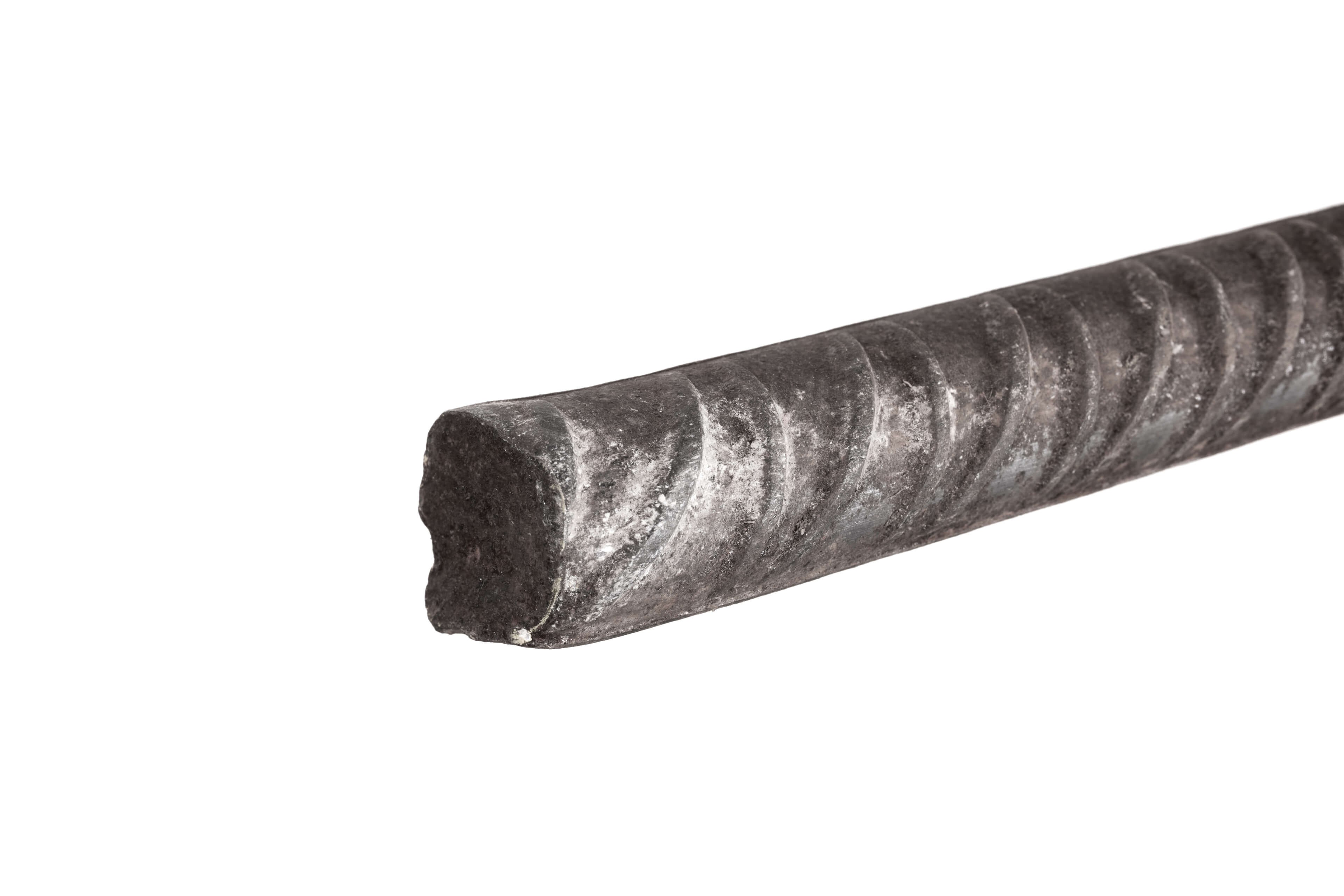Reinforcement Bars
(8 Products)Steel reinforcement bars, commonly known as rebar (short for "reinforcing bar"), are steel bars used as a structural element to reinforce concrete in order to resist tensile, shear, and bending stresses. Concrete, while strong in compression, is relatively weak when subjected to tension or bending forces. Rebar is added to concrete to compensate for this weakness, ensuring that the concrete structure can handle a variety of forces and last longer.
What Are Reinforcement Bars?
Reinforcement bars (commonly known as rebar) are steel bars embedded within concrete to enhance the strength, stability, and durability of the structure. Concrete is incredibly strong when compressed (squished together), which is why it's ideal for handling vertical loads like the weight of buildings and bridges. However, concrete is weak when it comes to tension, which is the force that tries to pull it apart. For example, when a concrete slab bends under weight, it experiences tension in the bottom part of the slab. Without reinforcement, this tension would cause the concrete to crack and fail.
Rebar is made from carbon steel, which has excellent tensile strength, meaning it can resist being pulled apart. This makes it ideal for handling the tension that concrete alone can't manage. When concrete is subjected to tension, rebar absorbs the stress and prevents cracks from forming.
The surface of rebar is typically ridged or textured (called deformed rebar) to improve its grip within the concrete. When concrete is poured around the rebar, it bonds tightly with it, forming a solid connection. This bond ensures that both materials - concrete and steel - work together as one unit. Concrete handles compressive forces (pushing forces), and rebar handles tensile forces (pulling forces).
Rebar is strategically placed in areas of a concrete structure that will experience the most tension, typically the middle or lower parts of beams, slabs, or columns. The placement is crucial for maximising the reinforcement's effectiveness. For example, in a concrete beam, the top part of the beam might experience compression, while the bottom part will experience tension. By placing rebar in the bottom half, you help the concrete resist tension and prevent cracking.
What They Do
- Strengthening Concrete: Concrete alone is prone to cracking under tension. Rebar, which has high tensile strength, compensates for concrete's weakness in this area, ensuring that the structure can withstand bending and stretching forces without failing.
- Prevention of Cracking: Over time, concrete structures can crack due to various forces like temperature changes, drying shrinkage, or external loading. The embedded rebar helps to control cracking and keeps the structure intact.
- Enhanced Load Distribution: Rebars distribute loads evenly across the concrete, preventing it from breaking apart under heavy weights or stress.
Applications
- Concrete Slabs: Strengthens and supports load-bearing slabs.
- Beams: Reinforces structural beams to withstand bending forces.
- Columns and Piers: Provides stability and load distribution in vertical elements.
- Foundations: Ensures structural integrity in the base of buildings.
Benefits
- Enhanced Strength: Increases tensile strength of concrete, allowing it to withstand greater forces.
- Durability: Improves the longevity of concrete structures, reducing the risk of cracking and structural failure.
- Flexibility: Can be manufactured in various shapes and sizes, including bent and straight bar products, to meet specific design requirements.
- Corrosion Resistance: Options like galvanised and epoxy-coated rebars provide extra protection against environmental factors.
Frequently Asked Reinforcement Bars Questions
Which Applications Require Reinforcement?
To put it simply, any structural concrete application that demands a high degree of load-bearing should be reinforced. Let's outline a few examples below:
- Footings
- Foundations
- Slabs
- Columns
Here at Materials Market, we stock an extensive range of reinforcing products from bars and mesh to reinforcement coils. Our metalwork range aims to extend the life of your concrete projects, so you can have confidence in your project, no matter the application.
How Do I Choose Between Deformed, Mild Steel, Galvanised, and Epoxy-Coated Rebars for My Project?
The choice of rebar type depends on the specific requirements of your project:
- Deformed Steel Bars: Best for general reinforcement where strong bonding with concrete is needed.
- Mild Steel Rebar: Suitable for projects requiring flexibility and easy on-site bending.
- Galvanised Rebars: Ideal for environments prone to high moisture or chemical exposure.
- Epoxy-Coated Rebars: Recommended for structures in corrosive environments or where additional protection is necessary.
What Is Deformed Rebar?
Deformed rebar refers to rebar that has ridges or a textured surface. These ridges help the rebar bond more securely with the surrounding concrete, improving the overall strength of the structure by preventing the rebar from slipping out of place.
Where Is Rebar Placed In A Concrete Structure?
Rebar is placed in areas of a concrete structure that are most likely to experience tension, such as the bottom half of beams, slabs, and columns. Proper placement ensures the concrete can handle both compressive and tensile forces effectively, preventing cracking or failure.
Does Concrete Need Rebar?
Concrete does not always necessitate rebar, especially in low-stress applications, such as small, non-load-bearing structures. However, in most concrete construction, rebar is essential for ensuring the concrete can handle tension and perform under load without cracking or failing.
How Does Rebar Prevent Concrete From Cracking?
When concrete is exposed to tension forces, rebar absorbs those forces, preventing cracks from forming in the concrete. The steel bars work together with the concrete to distribute the stress, keeping the structure stable and intact.
What Are The Different Grades Of Rebar?
Rebar comes in various grades, which indicate its strength and tensile properties. The most common grades are #40, #60, and #75, with the number indicating the yield strength of the steel in ksi (kilo pounds per square inch). Higher-grade rebar is used for more demanding or high-strength applications.






